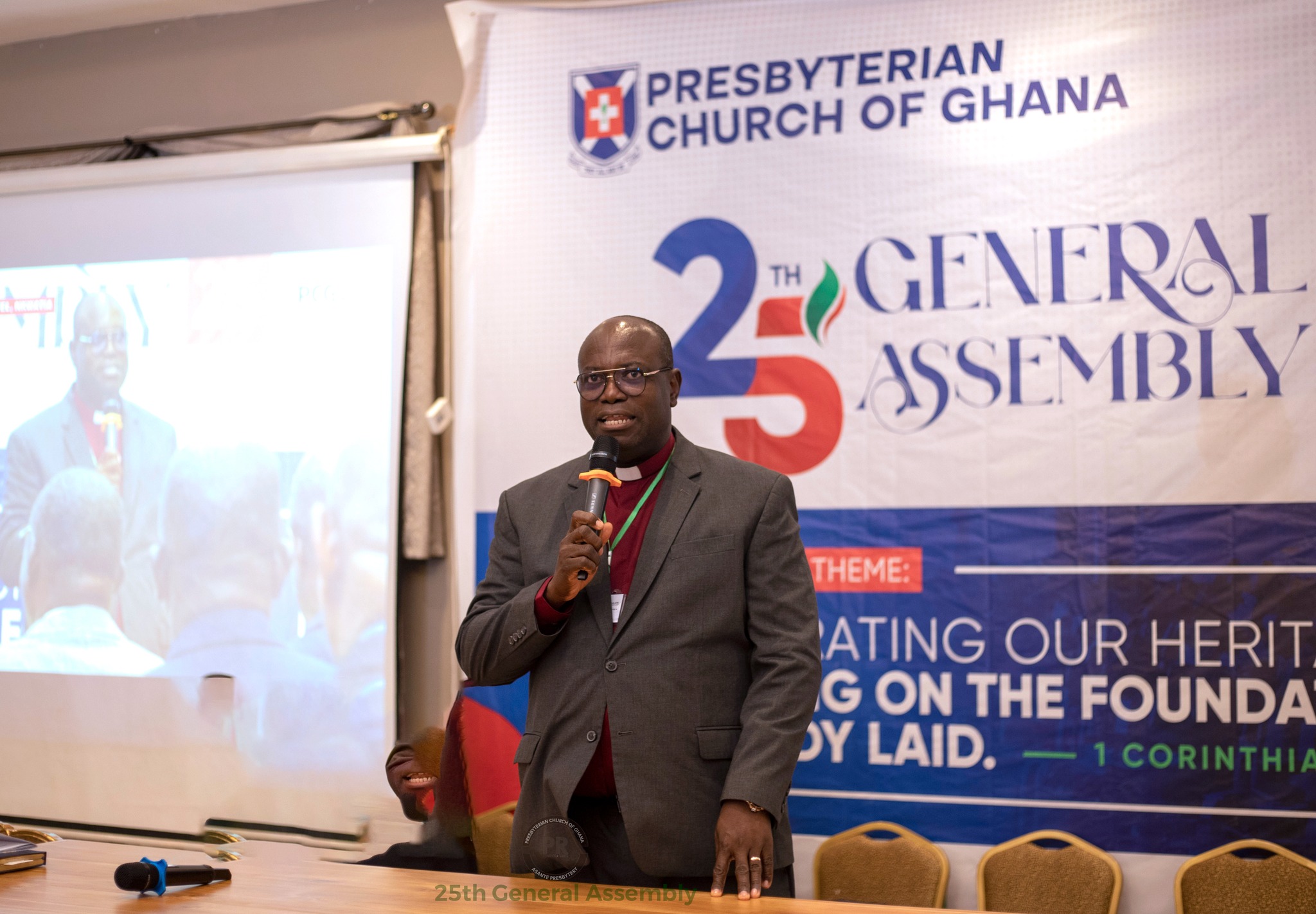The Moderator of the General Assembly of the Presbyterian Church of Ghana, Rt. Rev. Dr. Abraham Nana Opare Kwakye, has issued a heartfelt challenge to composers and musicians of the Church to display creativity by producing musical works that “go to the heart of the Ghanaian Christian.” He made this call during his address to the 25th General Assembly of the PCG currently ongoing at the Rock City Hotel, Kwahu-Nkwatia.
Drawing from the missionary J. G. Christaller, who in the foreword of the 1878 revision of the Twi Hymn Book wrote:
“We have not yet found out the laws and rules of native poetry. But if any gifted poet should arise and sing Christian songs going to the heart of the Twi-speaking people better than the hymns in the book… we should wish him God speed with all our heart, not minding that the hymns of our making may pass into oblivion.”
This historic statement, made during the formative years of Presbyterian mission work in the Gold Coast, reflects a long-standing Reformed conviction that worship music should speak both to the mind and to the heart, and should be shaped by the language, culture, and experience of the worshipping community—without compromising biblical truth.
Biblical Foundations for Music in Worship
From the Old Testament, music has been integral to God’s people. King David, a “man after God’s own heart” (Acts 13:22), organized the Levites into choirs (1 Chronicles 25) and composed psalms that still shape Christian worship. The Psalms themselves are God-inspired songs that express the full range of human emotion from praise to lament, reminding us that singing is both an act of devotion and a ministry to the soul.
In the New Testament, the Apostle Paul exhorts believers to “Let the word of Christ dwell in you richly… singing psalms, hymns, and spiritual songs, with thankfulness in your hearts to God” (Colossians 3:16). For the Reformed tradition, this means music must be grounded in Scripture, Christ-centered in content and edifying to the body of Christ.
Historical Roots in the Reformed Tradition
The Protestant Reformation emphasized congregational singing as a way for the whole church—not just choirs or clergy—to participate in worship. Reformers like John Calvin encouraged the singing of metrical psalms so that God’s Word could be hidden in the hearts of believers through melody. Similarly, in Ghana, Basel and Scottish missionaries brought hymnody that combined Scripture-based lyrics with structured harmony, laying the foundation for our Presbyterian musical heritage.
Christaller and his contemporaries did not merely translate Western hymns but sought to plant the seeds of an indigenous Christian hymnody that could grow out of the soil of African culture, language and rhythm. This vision still calls to us today.

A Call to Contemporary Creativity
The Moderator urged composers and creatives to contextualize the gospel in contemporary Ghanaian forms by creating choruses, biblically sound poetry and Christ-centered plays and dramas that echo our yearly themes. He further encouraged the systematic documentation of the Singing Band and Women’s Fellowship’s songs and compositions as part of the Church’s enduring contribution to global Christianity.
In his closing challenge, Rt. Rev. Dr. Opare Kwakye called for a new wave of Spirit-led creativity that honors the biblical mandate to “sing to the Lord a new song” (Psalm 96:1) while building on the rich heritage already laid by those who came before us.

